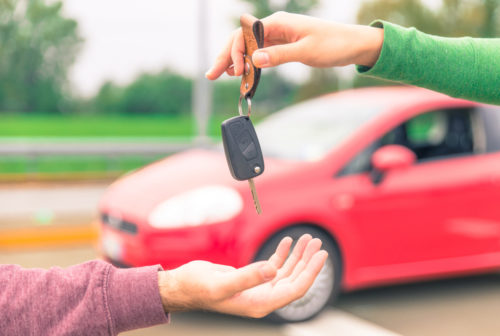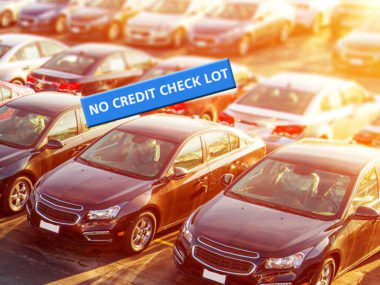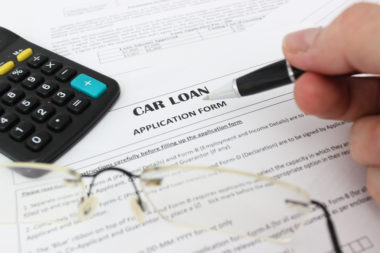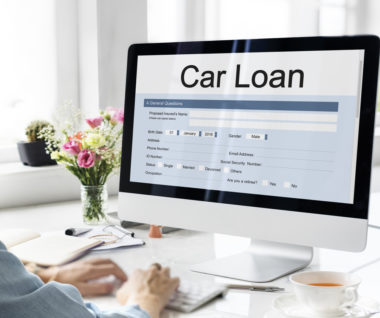You’re thinking about buying a car, but maybe something from a private seller would be more affordable. Well, before you start looking, it’s a good idea to do some preliminary research and set an appropriate budget. After you’ve completed those steps, it’s time to dive in to the world of car shopping. It’s such an exhilarating, yet intimidating time. As such, in order to successfully find the car you really want, you have to know where to look, what to ask for, and how to be safe when buying a car from a private seller.
Table of Contents
Can I Get a Car Loan for a Private Sale?
Absolutely, you can obtain a car loan for any vehicle that you choose to buy. However, the bank has to sign off on the sale. You’ll need to give them information about the car that you’re thinking about buying, which will include all associated paperwork from the car (title and registration) as well as the VIN number of the car.
They’re going to collect information from both you and the private seller, including phone numbers, places of employment, current addresses and possibly more. The information that the bank asks for from the seller will vary depending on the institution, but they’ll definitely need some information to tie the sale to someone — and issue them their check. So, getting a loan for a privately sold car shouldn’t be a problem, as long as the bank deems it a reputable and legitimate sale. However, there are some things you should know about your own liability before you start shopping around.
First and foremost, buying from a private seller puts much more responsibility on you. When you purchase from a dealer, your car might come with a warranty of some kind. Often, you’ll have at least a three to six month warranty offered from the dealership that limits your liability if something happens after you drive off of the lot. If something breaks that the dealer wasn’t aware of, they’ll usually help you out if it hasn’t been too long after the sale. As such, if you’re thinking about buying from a dealership, this is something you should bring up.
On the flip side, private sellers don’t have the option of providing you with a warranty, so if something breaks it’s your job to fix it. When you sign on the dotted line, you’re accepting liability and you’re saying that you approve of the car as is. This means that you should be extremely thorough when you check out used cars from a private seller. Do as much research as possible and ask a lot of questions. First, let’s start with how and where you should meet sellers.
Safety First: Finding and Meeting the Seller
When you’re purchasing a car from a private seller, please always remember to put your safety and well being before anything else. Be smart about choosing a seller and don’t do anything that makes you feel uncomfortable. If the ad seems fishy, it probably is. Report it if necessary, but don’t talk to anyone if you don’t feel comfortable and certainly don’t set up a meeting with a private seller who makes you uneasy.
With that being said, even if you do find a listing that seems quite professional and legitimate, never meet up with the seller by yourself. It’s always a good idea to have another person with you just to be safe. This is additionally beneficial just because you can have a partner there to backup your questions and concerns (and possibly your negotiations).
Where to Find Private Car Sellers?
There are numerous places that you can search for private for sale listings. Namely, Craigslist is a popular choice. However, you should know how to look for an authentic listing. To start, the seller should be straightforward about everything going on with the car. They should list the mileage, exact model and make, year, and condition of the car. They should tell you if any repairs have been done to the car, how many owners the car has had, and any problems it is having or could have soon. Anything that a dealership would tell you should also be known and provided by the seller. Remember, if you’re spending your hard earned money on this car, you deserve to know everything there is to know about your investment.
Sure, sometimes people forget to say certain things in their listing, that kind of thing happens all the time — we are human after all. However, they should have a clear way to contact them if you’re inquiring about a car, and they should get back to you quickly when you have questions. As such, if you find a listing that looks promising, it’s a good idea to send them a quick message, or give them a call and just verify everything on the listing. The information that they give you only should match what is described in the listing and go above and beyond what is provided. If the things they are saying don’t add up, it’s time to walk away.
Where to Meet Private Car Sellers?
Once you’ve found a listing that meets your standards, it’s probably time to meet up and take a look at the car. You’ll want to test drive it and make sure that it is exactly as it was pictured in the listing. To start, make sure you have your shopping buddy with you and ask to meet in a public place if at all possible. Any public area, shopping center, or other space occupied by other people is a smart idea. If you can, it’s best to pick a place that you are familiar with. Your safety should be non-negotiable. If someone isn’t willing to make sure that you feel comfortable and safe, they aren’t worth doing business with.
Paperwork: What You and the Seller Will Need
While you’re making your plans to meet up and test drive, it’s a good time to check and see if the seller has all of the appropriate paperwork necessary to actually sell the car. If they are not in ownership of the title and registration, they won’t be able to sell the car to you anyway, so it’s not worth your time. If someone says they are selling someone else’s car, that’s also not a good sign. You don’t want to be put in a situation where the bank thinks you’re trying to buy a stolen vehicle. Always make sure that you are buying directly from the owner of the car.
First, the seller should have their title, which shows they have ownership of the car. This piece of paper proves that you are the owner of the car and you must have it in your possession after the sale is complete. The title will include the seller’s information, including their name, contact information, and address. If you choose to buy the car, you’ll fill out your own information on this sheet, showing that the car has been transferred into your name.
The seller should also have their registration paper to show you and the bank. This shows that the car was actually registered in their name through the department of motor vehicles and legally they were the one owning and driving the car. If you decide to buy the car, you’ll have to complete your own separate registration process through the DMV to set yourself up as the legal owner and primary user of the car.
Lastly, it’s important to quickly note that if you choose to purchase a privately sold car without the use of a loan, you’ll need to provide documentation of the sale. When you buy through a bank, they will create a bill of sale for you, which just further enforces that this was a legal sale and that both parties were willing. It signs over all liability and ownership responsibilities to the buyer of the car. So, just keep that in mind, if you choose not to go through a bank, make sure that all of your bases are covered and draw up a bill of sale.
Inspecting the Vehicle
After you’ve completed the above steps, it’s time to do some history research, inspections, and test drive the car. As we talked about earlier, the seller should be forthcoming with any information about the history of the car. They should tell you about any previous owners as well as any repairs the car has had. However, if they’re not sure about everything, you can (and should in any case) do some research of your own. You can input the car’s information to databases, like Carfax, that tell you any information you might need to know about the car. It might simply tell you what the owner already knows or it could give you some extra information detailing the history of the car. Knowing what happened in the car’s past is crucial in order to care for it properly in the future.
Now that you know the car’s history, and presumably you’re still interested, it’s time to take it on a test drive. Jump in the car and take a detailed look at everything. Test out all of the features of the car to make sure they are in safe, working condition. The condition of the car, inside and out, should be as described. When you drive the car, it shouldn’t have any problems that you aren’t already aware of. Listen to the engine and make sure that it’s working properly. Test the brakes, lights, mirrors, and seat belts to assure yourself that you feel safe driving the car.
What’s more, it’s a good idea to get the car inspected. There is a lot that you can determine with your own eyes and ears, but some things can only be seen by professionals. Check your local area to see what shops offer car inspection services and ask the owner if they’re okay with the inspection. It’s worth it to have the peace of mind knowing you’re not going to get any surprises after you’ve already invested in the car.
Lastly, before you decide to buy the car, make sure that you can find the VIN number. It should be listed on the title of the car and the owner should know where to physically find it inside of the vehicle, every car has a VIN number stamped somewhere inside. The bank will need this number in order to complete the transaction and you might need it before you do some history research, but if you don’t have it yet, now is the time to find it. This number is used to identify that particular car. No two cars have the same exact VIN number. Once you give that number to the bank, they will link the sale of the car to that specific vehicle. If the seller (dealer or private) doesn’t have the VIN, you likely won’t be approved for your loan. If the seller doesn’t have a VIN, that’s a pretty glaring sign that the car wasn’t bought or sold legitimately and you should walk away.
Armed with all of the above knowledge, you can feel confident when choosing to purchase a car from a private seller. Both buying from a dealership and from a private seller have their perks and downfalls. No one choice is easier than the other, however, in the instance of a private seller, the issue of your safety is of the utmost importance. Before anything else, make sure that you feel comfortable and safe when discussing a possible sale. After that, it’s just about gathering information, test driving, inspecting, and giving all of the specifics to your bank. If you follow these steps, you’re to find a wonderful car that suits all of your needs.
Image Source: https://depositphotos.com/





